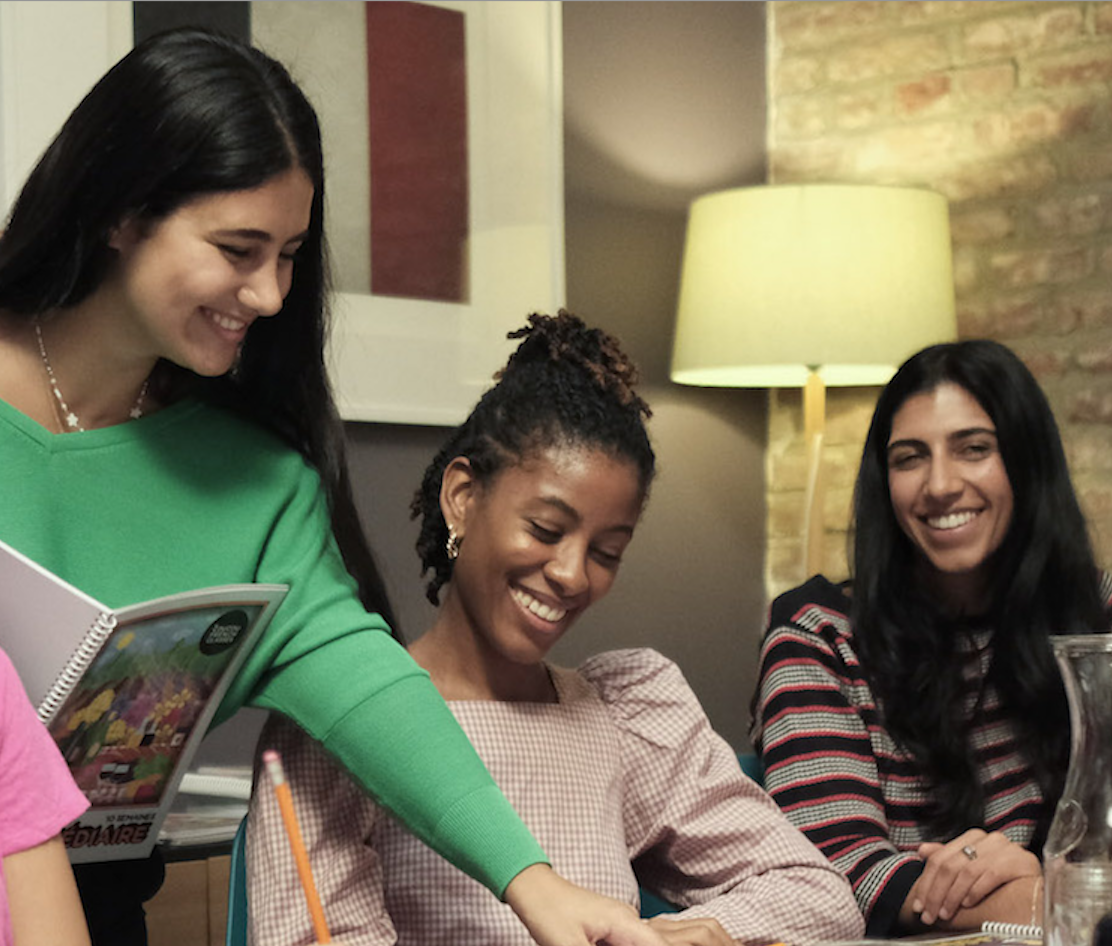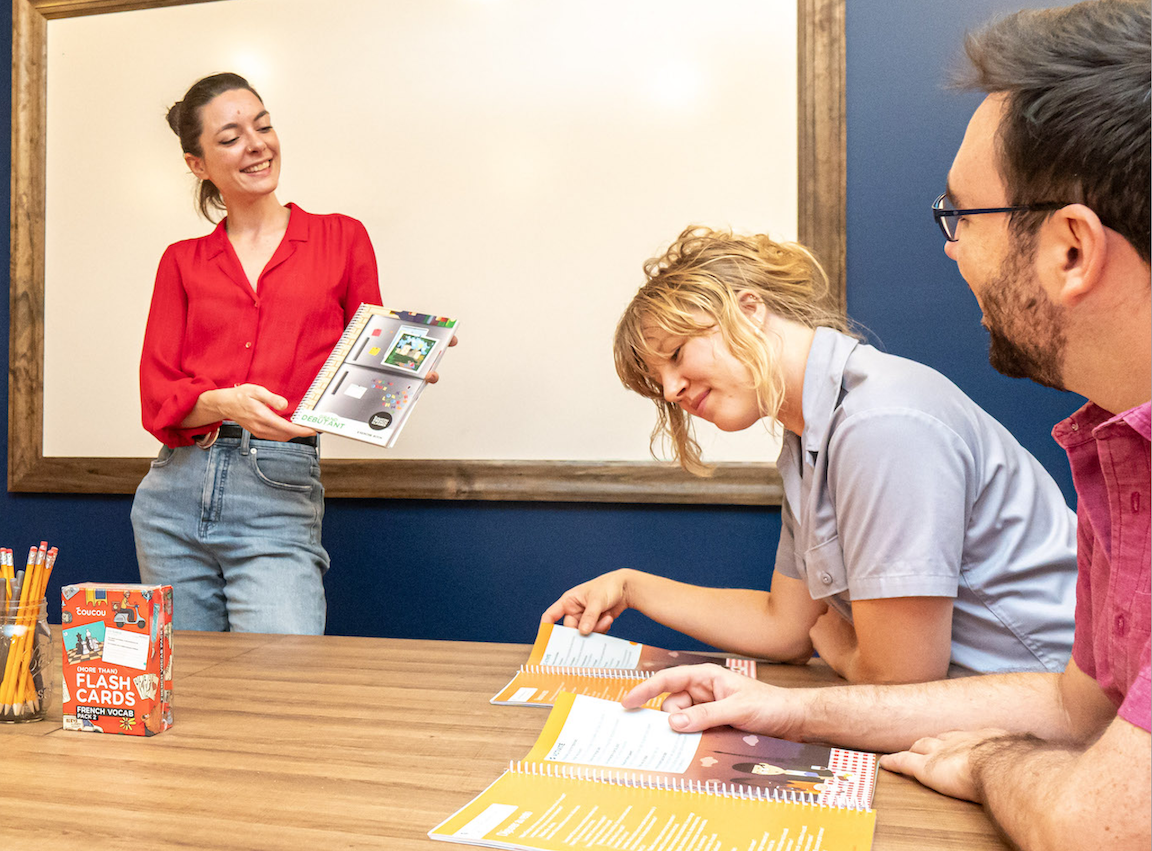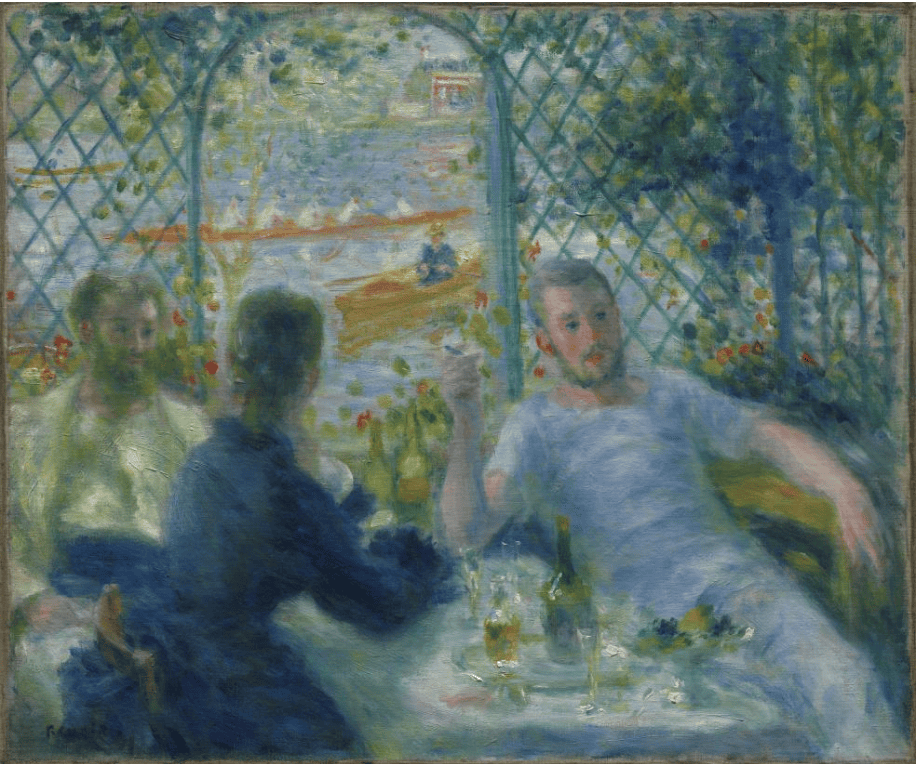Learning French is an exciting adventure, but let’s be honest—it’s also full of potential faux pas! In this article, we explore funny and cringe-worthy expressions that can get you awkward looks, embarrassed, or even in trouble. From innocent mistakes with double meanings to phrases that are just plain rude, we’ll help you navigate French etiquette with a smile! Explore our lighthearted guide to avoid conversational pitfalls, but never forget that, at the end of the day, it’s always better to say the wrong thing than to say nothing at all. Braving the risk of being wrong and speaking anyway is the best confidence boost ever!
By Florian Fructuoso
Je suis plein·e
You just finished a delicious meal and want to express your gratitude and satisfaction, or maybe you just need an excuse to refuse a second serving… Naturally, you say to your host, “I’m full!”. It’s short, straightforward and leaves no room for imagination. The issue is that the expression “I’m full” cannot be translated literally from English to French.
In French, you’ll hear the expression “être plein·e DE” followed by a noun if you’re full of something in an abstract way. For example, you can be “plein·e d’idées” (full of ideas) “plein·e de ressources” (resourceful), “plein·e d’énergie” (full of energy) ou “plein·e d’enthousiasme” (filled with enthusiasm). Unfortunately, if you just describe yourself as “plein·e,” people won’t think you just aren’t hungry. Actually, “plein·e” can be used to describe a female animal that’s expecting! Oops!
In order to inform people that you’re done eating, you can use:
- J’ai plus de place
(lit. I have no room left)
- J’ai plus faim
(I’m not hungry anymore) - The very formal Je suis rassasié.e
(I’m satiated)
Je suis excité·e
Americans are famous for being excited for a lot of things and we love them for that. That’s why it’s almost second nature sometimes to say “Je suis excité.e” when wanting to share this feeling with French speakers. I usually don’t advise that you completely ban this word from your vocabulary, especially because English expressions tend to seep more and more into French in the 21st century with the advent of social media. However, use it at your own risk, knowing that “excité·e” is stored in our collective conscious mind as a sexual term, with “Tu m’excites” being the best phrase to let someone know they turn you on…
Paradoxically, “excité·e” can also be used to describe a child when they’re extremely agitated. You know, like when you’ve got your kids and their classmates all together in one place, running around, screaming, that’s guaranteed to end in drama: That’s what we’d call “des enfants excité·es,” and don’t worry, it doesn’t sound weird at all.
In order to express your own excitement about an upcoming event: “Il me tarde de” or “j’ai hâte de” is your best bet, they are both followed by a verb at the infinitive. For example:
- – Il me tarde d’aller au concert de Beyoncé. – Oui ! J’ai hâte aussi.
(I can’t wait for Beyoncé’s concert! Yeah, I’m excited too) - – J’ai hâte de partir en vacances. – Oui, il me tarde de boire des cocktails près de la plage.
(I can’t wait to go on vacation. Yes, I’m excited to have cocktails by the beach)
If it’s more of an “I’m excited right now” situation, we don’t have a great expression for that, so I would ditch words and go for a little jump or scream of excitement. That way, you’re sure to not be misunderstood!
Je suis chaud·e
One of the first things you learn in French is that we are not hungry or thirsty, but rather that we “have” hunger and thirst. (“J’ai faim”, not “Je suis faim”). But if you forget this, the worst thing that’ll happen is that your French native interlocutor will think you just need to go back to the basics.
The rule is the same for being hot and cold, but unfortunately, if you say “je suis chaud·e” instead of “j’ai chaud”, that could get you into trouble, because we do sometimes use “chaud” with “être” but it won’t have anything to do with temperature (or not the way you think!).
“Je suis chaud·e,” meaning “I’m down to do something”:
In a social and familiar setting, we sometimes respond “je suis chaud·e” to agree with someone’s suggestion:
- – Tu veux aller au ciné voir le dernier Marvel ce weekend ? – Grave ! Je suis chaud !
(Do you want to go to the movies to watch the new Marvel this weekend? –Totally! I’m down!)
“Je suis chaud·e” as in “I’m pumped”:
Mostly heard in the context of sports or competition, or to address the crowd at a concert, “être chaud·e” simply expresses being ready to go and energized. For example:
- – Il reste 5 minutes avant la fin du match, est-ce que tu peux marquer un but ? – Oui je suis chaud !!!
(There’s 5 minutes left before the end of the game, can you score? –Yes, I’m pumped!!!) - – DJ to the crowd : Est-ce que vous êtes chauds ce soir ????? – Ouaaiiiiis !
(are you ready to party? –Yeaaaahhhh!)
“Je suis chaud·e” as in “I’m horny”:
Because French can be a very sexist language, it’s in the feminine form that “ je suis chaude” will sound the most like “I’m horny”. Actually, you’ll hear it mostly in the third person, “elle est chaude”, from men who feel the need to describe how aroused women can be. Because of that, unless you want to play the “foreigner card” to seduce a French-speaking person, you’ll want to avoid saying it.
To sum it up, just remember that if you want to express that you FEEL hot or cold, you need to use the verb avoir.
- Tu peux mettre la clim ? J’ai chaud !
(Can you turn on the AC? I’m hot!) - Tu peux me passer ma veste ? J’ai froid !
(Can you give me my jacket? I’m cold!)
Est-ce que vous pouvez me prendre ?

Another thing we learn pretty early on in the French language journey is that we don’t use the verb “prendre” when we take people or things somewhere.
Most of the time, you won’t be misunderstood; If you tell me “Je dois prendre les enfants à l’école”, I’ll know you mean “I need to take the kids to school”, although the correct verb to use here would be “amener” (je dois amener les enfants à l’école).
That being said, you have to know that “prendre” can sometimes be used to describe things happening in the bedroom (“ooh la la!”–which, if you’ve read PART 1 of this series, you’ll know we don’t say either), so depending on the context, you want to be extra careful.
For example if you tell your taxi driver “Est-ce que vous pouvez me prendre à la Tour Eiffel ?” it might sound like your car trip is not the only ride you’re interested in!





